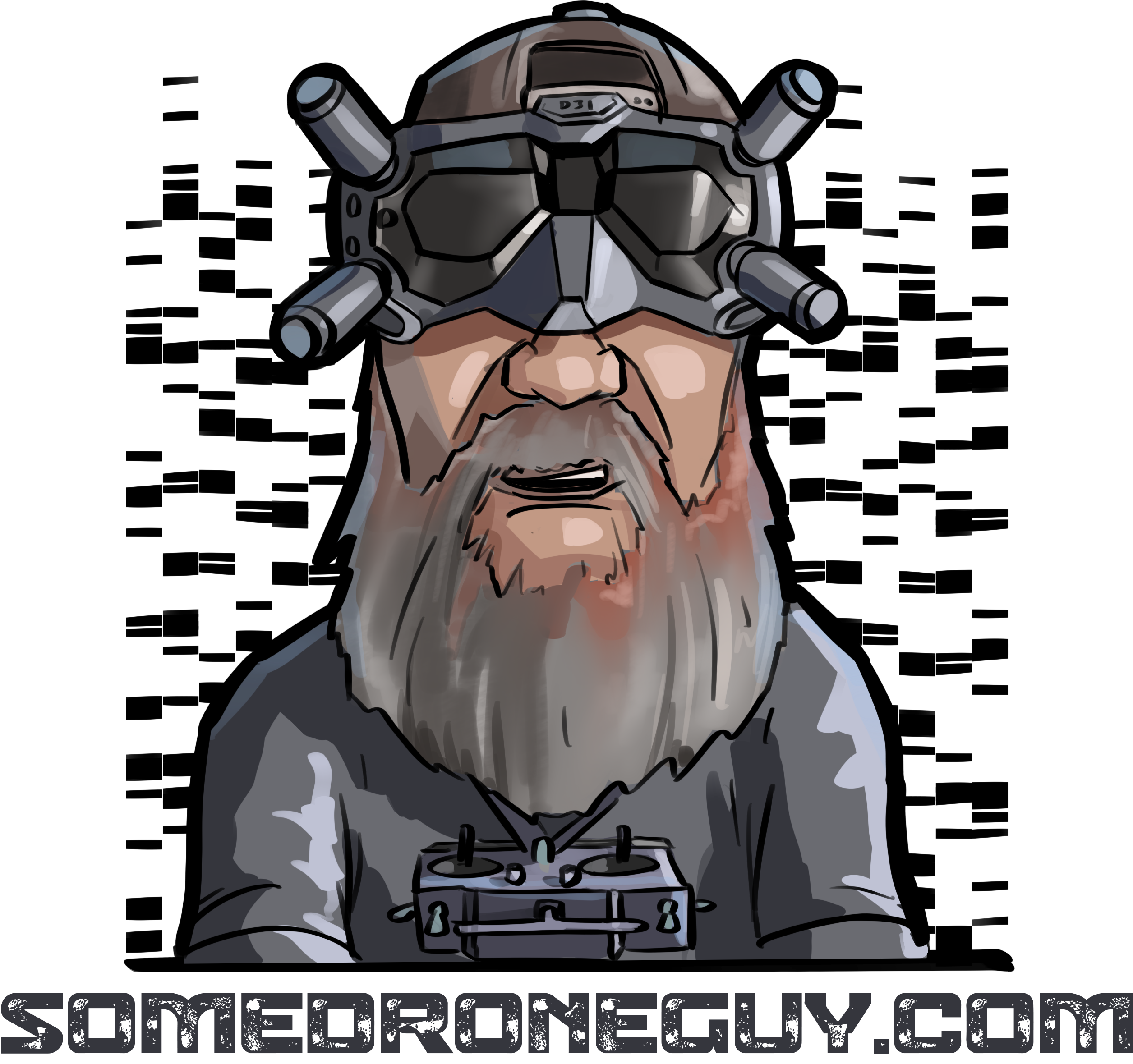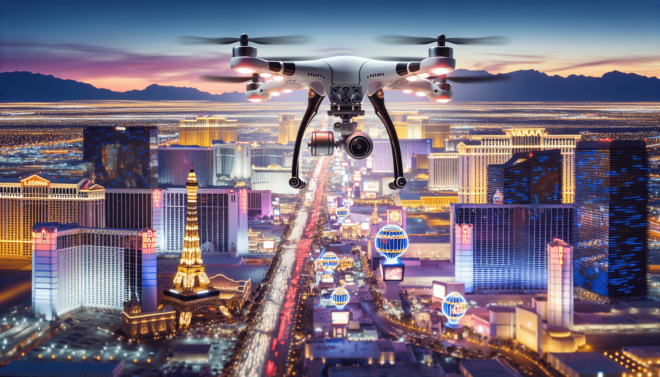Have you ever wondered how local law enforcement agencies regulate drone usage in Las Vegas? As technology advances, the increase in drone usage has raised numerous concerns and considerations. Las Vegas, known for its vibrant nightlife and bustling tourism industry, faces unique challenges in managing drone activity to ensure public safety and privacy. This article delves into the regulations, enforcement strategies, and collaborative efforts of local law enforcement when it comes to handling drones within the city.
The Evolution of Drone Technology
Drones, also known as unmanned aerial vehicles (UAVs), have come a long way since their initial development. Initially used for military purposes, drones have now become accessible to the general public, offering a range of applications from recreational use to commercial and professional services. In Las Vegas, the accessibility and versatility of drones have added another layer of complexity for local law enforcement agencies.
The Rise of Recreational Drone Use
Recreational drone use has seen a meteoric rise over the past decade. Hobbyists and enthusiasts often use drones for photography, videography, and aerial exploration. Las Vegas, with its iconic skyline and scenic landscapes, attracts many of these drone users, making popular tourist spots crowded with UAV activity. However, without proper regulation, recreational drone flights can lead to dangerous situations, such as mid-air collisions or interference with manned aircraft.
Commercial Drone Applications
On the commercial side, drones are employed for tasks ranging from real estate photography to infrastructure inspections, and even delivery services. In Las Vegas, both the hospitality and entertainment industries leverage drone technology for marketing and operational efficiencies. But with commercial use comes the necessity for stringent regulations to ensure these activities are conducted safely and responsibly.
Federal Regulations Governing Drone Usage
Before delving into local enforcement, it’s crucial to understand the federal guidelines that lay the groundwork for drone operations.
FAA Regulations
The Federal Aviation Administration (FAA) is the primary authority overseeing drone activity in the United States. The FAA’s regulations are pivotal for ensuring safety and compliance:
| Regulation | Description |
|---|---|
| Part 107 | The FAA’s Part 107 rule outlines the requirements for commercial drone operations. This rule includes guidelines on drone weight, flight restrictions, and the necessity for remote pilot certification. |
| Recreational Guidelines | For hobbyists, FAA guidelines include staying below 400 feet, keeping drones within line of sight, and avoiding flying near airports or other restricted areas. |
| No-Fly Zones | The FAA designates certain areas as no-fly zones. In Las Vegas, the proximity to McCarran International Airport and Nellis Air Force Base makes this particularly important. |
Understanding Airspace Classes
Airspace classification is another critical component. Most drone operations fall within Class G (uncontrolled airspace), but flying in Class B, C, D, or E (controlled airspace) requires additional clearances from air traffic control. Due to its urban environment, Las Vegas’s airspace classification poses additional challenges.
Local Legislation and Ordinances
While federal regulations provide a framework, local laws and ordinances tailored to the characteristics of Las Vegas are instrumental in addressing unique issues.
Clark County Ordinances
Clark County has enacted specific ordinances to regulate drones, particularly emphasizing safety and noise control. Key elements of these ordinances include:
| Ordinance | Description |
|---|---|
| Noise Regulations | Drones must adhere to strict noise control measures, ensuring that their operation does not disrupt the local community’s peace and tranquility. |
| Restricted Zones | Specific areas, such as schools, hospitals, and residential neighborhoods, may have additional restrictions or require permits for drone usage. |
City of Las Vegas Regulations
The City of Las Vegas has also implemented regulations to complement federal and county guidelines. These include:
| Regulation | Description |
|---|---|
| Public Event Restrictions | During large public events, such as concerts or festivals, drone operations may be heavily restricted or banned to ensure public safety. |
| Permitting Process | Those wishing to use drones for commercial purposes within city limits must go through a stringent permitting process that evaluates the purpose and safety measures. |
Enforcement Strategies by Local Law Enforcement
Regulating drone usage involves a multifaceted approach combining education, technology, and active enforcement by local law enforcement agencies.
Public Awareness Campaigns
One of the most proactive strategies employed by local law enforcement is public education. By informing the public about legal requirements and safe practices, authorities aim to foster responsible drone usage.
Utilization of Technology
Local law enforcement agencies have adopted advanced technologies to monitor and control drone activities:
| Technology | Function |
|---|---|
| Geofencing | Geofencing technology helps create virtual boundaries, preventing drones from entering restricted areas. In Las Vegas, this is often used near airports and sensitive installations. |
| RFID Systems | RFID systems can track drones and identify their operators. This is particularly useful in pinpointing unauthorized drone flights. |
| Drone Detection Systems | These systems employ radar and other sensors to detect and track drones, providing real-time data to law enforcement. |
Partnership with the FAA
Local agencies often collaborate with the FAA to ensure comprehensive coverage and compliance. This partnership includes information sharing, joint operations, and coordinated responses to incidents.
Specific Challenges in Las Vegas
While drone regulation is complex in any metropolitan area, Las Vegas presents unique challenges due to its distinct characteristics.
Dense Urban Environment
Las Vegas’s dense urban landscape complicates air traffic management, not just for manned aircraft but also for drones. Ensuring drones do not interfere with skyscrapers, billboards, and other structures requires meticulous planning and monitoring.
Tourism and Large Scale Events
The city is a global tourist hotspot, hosting numerous large-scale events such as music festivals, conventions, and sporting events. During these times, drone activity may increase significantly, necessitating heightened vigilance and stricter controls by local law enforcement.
Privacy Concerns
In a city known for its entertainment and sometimes controversial activities, privacy is a significant concern. Unauthorized drone flights can lead to privacy violations, prompting authorities to implement additional safeguards.
Case Studies of Enforcement
Understanding how regulations are enforced in real-world scenarios can provide valuable insights.
Incidents of Unauthorized Drone Flights
Several instances of unauthorized drone flights have been documented in Las Vegas. For example, a drone operator was fined for flying too close to McCarran International Airport, presenting a potential hazard to incoming and outgoing flights. Quick response by local law enforcement and coordination with the FAA ensured the situation was safely resolved.
Successful Public-Private Partnerships
The collaboration between local law enforcement and private enterprises has led to successful regulation. For instance, real estate firms and drone service providers often work closely with authorities to ensure their operations comply with all regulations, applying for necessary permits and adhering to specified guidelines.
Innovations in Drone Regulation
Efforts to regulate drone usage continue to evolve, with significant advancements aiding law enforcement in their mission.
AI and Machine Learning
AI and machine learning are being increasingly used to predict and monitor drone activity. These technologies can analyze flight patterns, predict potential violations, and suggest proactive measures to prevent unauthorized flights.
Legislative Developments
New laws and amendments are continually being considered to address emerging issues in drone technology. Keeping abreast of these legislative changes is crucial for both drone operators and local law enforcement agencies.
Training and Certification Programs
Enhanced training and certification for drone operators ensure that they are well-versed in safety protocols and legal requirements. Local law enforcement also engages in specialized training to stay updated on the latest drone technologies and regulatory changes.
Future Outlook
The future of drone regulation in Las Vegas looks promising as local law enforcement continues to adapt and evolve with technological advancements and changing legislative landscapes.
Integration with Smart City Initiatives
As Las Vegas moves towards becoming a smart city, integrating drone regulation into broader urban management systems could provide comprehensive solutions. Smart city technologies can offer real-time data, enabling more efficient regulation and rapid response to incidents.
Community Engagement
Engaging the community remains a cornerstone of effective regulation. By continuing to educate and involve the public, law enforcement agencies can foster a culture of compliance and responsibility among drone users.
International Best Practices
Learning from international counterparts can also benefit local enforcement. Cities globally face similar challenges and often develop innovative solutions. By adopting and adapting these best practices, Las Vegas can enhance its regulatory framework.
Conclusion
Regulating drone usage in Las Vegas is a multifaceted challenge that requires a combination of federal guidelines, local ordinances, advanced technologies, and proactive law enforcement. As drone technology continues to evolve, so too will the strategies and regulations governing their use. Through continuous adaptation and collaboration, local law enforcement agencies aim to maintain a safe, responsible, and innovative environment for drone operations in the city. So, whether you’re a hobbyist or a commercial operator, understanding and adhering to these regulations will ensure that you contribute positively to the dynamic landscape of Las Vegas.

